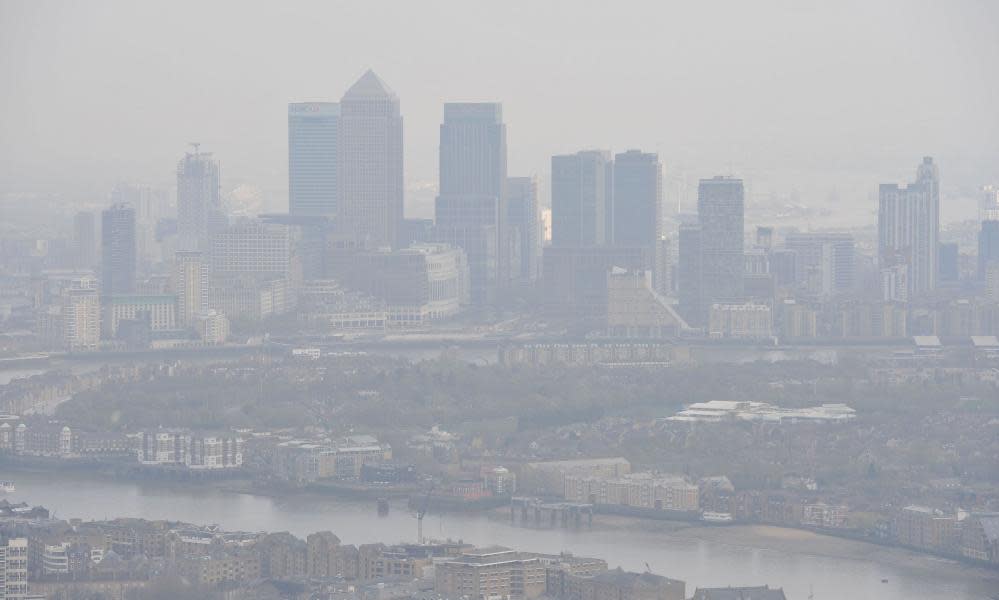Cross-party MPs say government is dragging feet on air pollution

The government has been accused of dragging its feet on air quality improvements by a cross-party group of MPs.
A partnership of four committees said serious concerns remained about the UK’s commitment to cutting pollution and its impact on public health.
The Commons environment, food and rural affairs, environmental audit, health and social care, and transport committees had made a series of recommendations to the government in the joint report in March. They included bringing forward a planned ban on the sale of new conventional diesel and petrol cars from 2040.
In its response, published on Wednesday, the government maintained that the existing date would put the UK at the forefront of the global transition to cleaner road transport.
It said its overall strategy to cut air pollution would “help us achieve our goals of cleaner air, a better environment, zero-emission vehicles and a strong, clean economy”.
MPs remain concerned about efforts to improve air quality. Mary Creagh, the chair of the environmental audit committee, said: “We need cities where people can move and can breathe, so it is worrying that the government is dragging its feet on air quality, even in the face of legal action by the European court of justice.
“It is also concerning that the government is not ready to demonstrate global leadership by forcing manufacturers to produce only clean vehicles before 2040.”
Lilian Greenwood, the chair of the transport select committee, said: “Our report called on the government to take action to reduce our reliance on cars and increase the use of public transport. We are disappointed, therefore, that the response does not include any substantial public transport or urban planning initiatives.”
The government has previously been criticised for a lack of urgency in tackling the air pollution crisis. Several other countries including India, Norway, Ireland and the Netherlands have set much more ambitious targets for vehicle bans.
The unprecedented joint inquiry was launched amid concerns over the government’s air quality plans, which have repeatedly been successfully challenged in the courts by environmental groups and found to be so inadequate as to be illegal.
The UN’s special rapporteur on pollution said last year that the UK government was “flouting” its duty to protect the health of its citizens, while the problem was declared a public health emergency by a cross-party committee of MPs in 2016.
Air pollution causes an estimated 40,000 premature deaths a year in the UK and is linked to health problems from childhood illnesses to heart disease and dementia.
Concerns over nitrogen dioxide emissions have grown since Volkswagen was found in September 2015 to have cheated air pollution tests with 11m diesel vehicles worldwide.
A government spokesperson said: “Air quality has improved significantly but there is still much more to do. We have put in place a £3.5bn plan to reduce harmful emissions and will introduce primary legislation to clean up our air. By ending the sale of conventional new diesel and petrol cars and vans by 2040, we are acting faster than almost every other major developed economy.”

 Yahoo News
Yahoo News 
